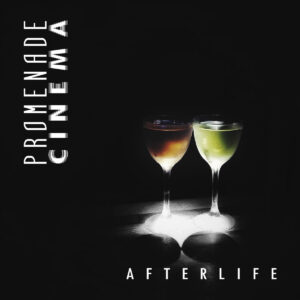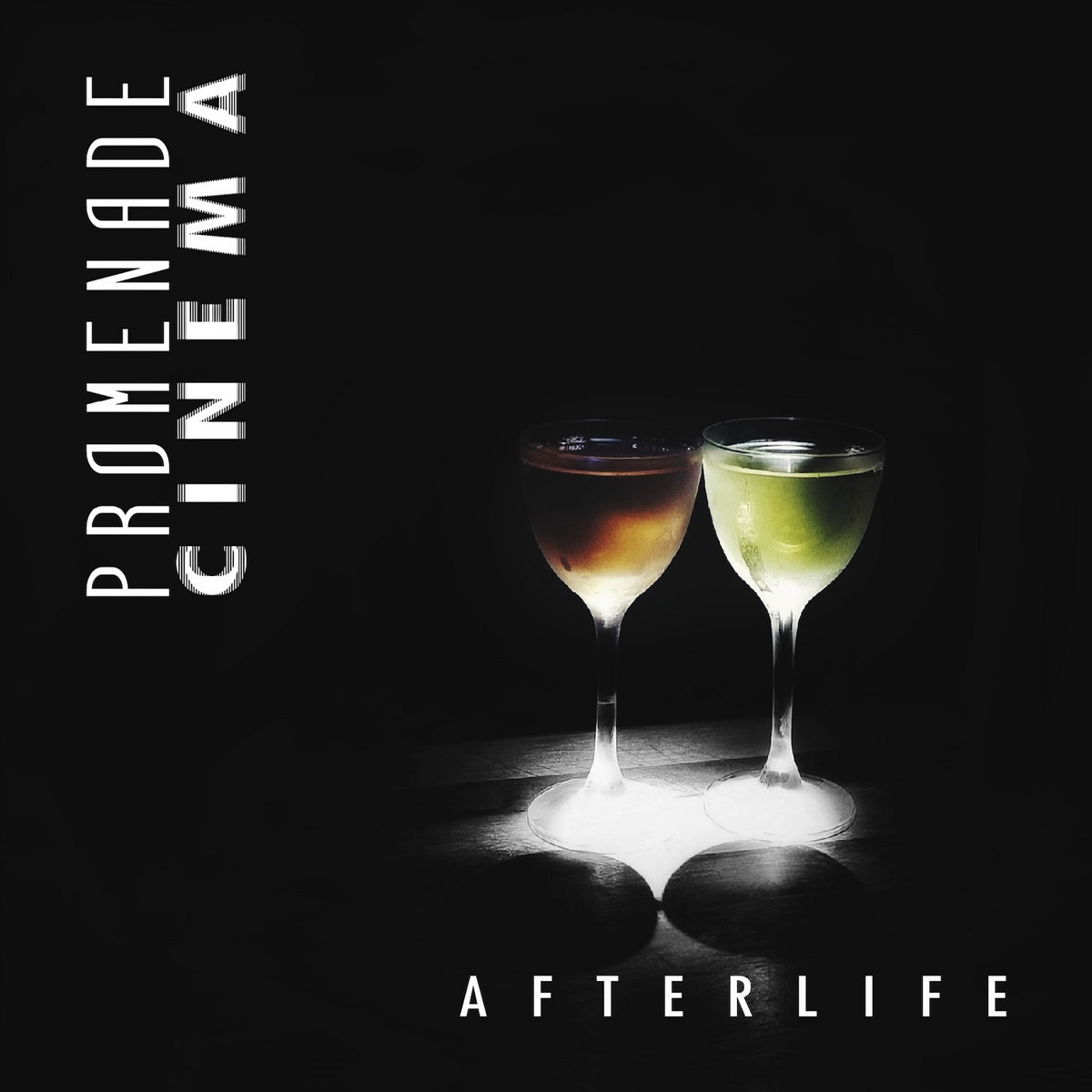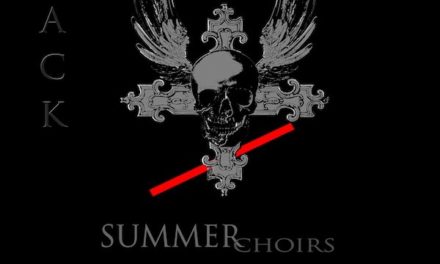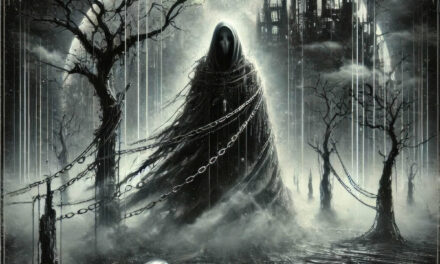
Promenade Cinema
Afterlife
self-released
UK darkwave/electropop duo Promenade Cinema have earned plenty of plaudits for their recent work at home and on the continent, and with third LP Afterlife there’s nothing standing in the way of further incursion into North American clubs. On their new record Emma Barson and Dorian Cramm morph the moodier, dark drama of 2020’s Exit Guides into a much more intense full court press, with synth strings, pads, dancey beats, and perhaps most importantly Barson’s vocals all dialed up to 10. In comparison to Exit Guides, Afterlife is more Ashbury Heights, less Black Nail Cabaret, to position Promenade Cinema in relation to a couple of preceding acts with very different iterations of a darkwave/electropop hybrid style.
On the whole, that more aggressive and rich approach pays off here, simply because Afterlife has an impressive clutch of immediate tunes which immediately shine in the more intense spotlight, with less opportunity to hide in the shadows of nuance or ambiance. Second cut “Under Review” is a prime example, letting its big vocal hook serve as a calling card and thread throughout, with Barson’s vocals holding pace with the rise and ebb of the alternately bleeping and squalling programming, modulating her voice but never straying too far from the track’s pure chugging pop. “Runners” might be a bit less of a sugar rush, but there’s still a direct rise from its pensive verses to a big florid chorus, with Barson’s vowel modification refracted through multicoloured pads and ricocheting off drum fills.
That strength of material and forthright delivery runs through the majority of Afterlife. Even when they take it down a notch, as on the more understated “Empty Space”, the wistful sunset outrun programming and, again, Barson’s winsomely melancholy voice cinches the whole thing. If the record has a flaw, it’s its tendency to return to and recombine what worked for the first half in the second half, almost reworking one track’s structure at another’s tempo, or holding so close to the formulae of those earlier songs that minor instrumentation changes become their defining features. There’s nothing at all wrong with tunes like “Alone At Parties” and “Soulslike”, it’s just that their similarities to earlier, slightly stronger tunes like those mentioned above can cause the listener’s attention to slip somewhat in the back half. I’m not sure if this is a question of editing or simply one of sequencing, but it’s not at all a dealbreaker; even when the novelty of its material fades a bit, Afterlife‘s still plenty charming.
At it’s best, Afterlife is big, elegant stuff with songwriting belying great instincts for the mechanics and pacing of goth-pop fare like this, and crack vocal delivery and charisma. As much as the sources and style Promenade Cinema are working with will be immediately apparent to most listeners, the fact is that pulling off material like this is deceptively hard, with plenty of bands unable to find equanimity between atmosphere and bedrock songwriting. If Cramm and Barson are struggling to to get that balance, you’d never know by listening to Afterlife. Recommended.





